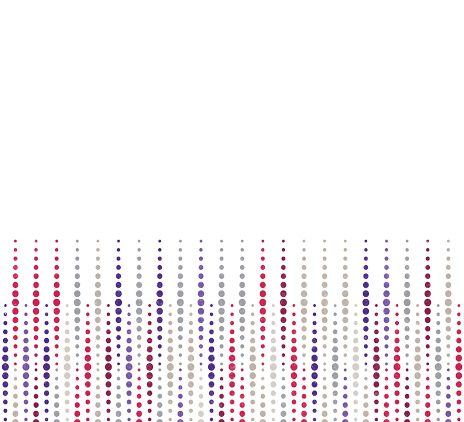-
Valuations
For organisations involved in a transaction, dispute, merger, acquisition or restructuring, the value of the company involved and its assets will be an important commercial consideration. A clear and thoughtful view of the respective value is therefore essential in such situations.
-
Due diligence
Due diligence identifies risks and examines potential financial, tax, legal or operational pitfalls. We offer robust due diligence services, clearly tailored to our clients' requirements.
-
Independent trusted advice
Do you want to sell your business or rather grow it through an acquisition?
-
Corporate reorganisations
Redesigning your group structure can mean significant cost savings and/or efficiency improvements. The restructuring provisions of the Companies and Associations Code (merger, demerger, contribution or transfer of branch of activity, etc.) provide you with the legal means to achieve this.
-
Legal support
Mergers and acquisitions represent a challenge for dynamic organisations. As a manager or entrepreneur, you want to look at this challenge from all sides to obtain the best conditions. That is why our professionals work on the basis of integral process management during merger, sale or acquisition processes.

-
Transfer pricing
Our experts help document your transfer pricing principles, intra company transactions and internal reporting and organisation. They design and implement settlement pricing structures for both national and multi-national companies. When services are centralized, they determine acceptable costs and margins.
-
Global mobility services
International employment has become a standard practice in today's HR policies. Nevertheless, it raises several questions for both the expat and the employer.
-
International tax & VAT
If your business has grown internationally or if you’re considering to take the step to expand abroad, you want to continue maximizing your efforts. Where domestic corporate tax laws may already be quite complicated, local legislation in other countries and international tax laws will most certainly add to the complexity of your business environment and organization.
-
IFRS reporting
IFRS reporting services for international groups and SMEs.
-
Financial statement audit
As a large organisation, you are required by law to appoint an auditor to report to the general meeting on the (consolidated) financial statements.
-
Agreed upon procedures
As an entrepreneur or manager, you may entrust specific work to your company auditor. The nature, extent and scope of these activities or procedures are always mutually agreed upon.
-
IFRS reporting
The European International Financial Reporting Standards (IFRS) have been mandatory for listed companies in the European Union since 2005. However, these standards also offer specific advantages for unlisted companies and SMEs.
-
Legal assignments
When significant events occur, the Companies Act imposes audit and reporting obligations on your company. In which cases is reporting required?
-
Transaction advisory services
As independent advisers, our transaction specialists offer independent advice, not just on the financial aspects, but throughout the transaction cycle. Their independence is beneficial both to buyers as well as sellers. Our advisers work according to a structured methodology, keeping track of all financial, operational and strategic elements.
-
Restructuring
Based on our "to-the-point" analyses, we identify with you the appropriate restructuring opportunities to help improve cash flows, results and balance sheet positions in the short term.
-
Internal audit
An effective internal audit function helps dynamic organisations better manage risks and turn them into opportunities.
-
Risk and compliance management
What are the risks to my business? What steps should I take to avoid these risks? Our business-risk advisers will be happy to help you get started.
-
Data analytics & process mining
Companies have a huge amount of data at their disposal, and that amount of information is also increasing every day. Gaining deeper insight through data analysis can increase the value, commercial challenge and level of understanding of the business.
-
Process optimisation and internal controls
Futureproof organisations need to regularly revisit their strategies and objectives thereby optimizing their tactics, processes, internal controls and systems
-
ESG Consulting
Get to work on sustainability with Grant Thornton’s assistance. Choose our concrete, tailor-made solutions and embed ESG in your business operations.
-
Cyber risk services
Cybersecurity and data privacy threats evolve on a daily basis. It is essential to recognize the threats, understand your exposure, balance your priorities and formulate a comprehensive response. We provide support in addressing both global and local cybersecurity and privacy compliance needs. We assess the risks of cyberattacks and the maturity of security programs, and we recommend and implement workforce, process and technology solutions to protect information assets. Contact us for a solid strategy that will help you proactively manage cyber risks both inside and outside your organization. We are ready to help you safeguard your future.
-
Forensic & integrity
Fraudsters become more inventive and can adopt different strategies depending on their target’s weaknesses. It is therefore crucial to ensure the appropriate level of fraud risk preventative measures are present in your organization.
-
Whistleblow services
A whistleblowing programme helps your organisation to both prevent and detect fraud quickly. That way, you can reduce and even avoid fraud losses.
-
Corporate tax
Laws on taxation are dynamic. Making sure your organization’s liabilities are met, requires constant monitoring and managing. Our advisers can offer case-by-case advice, help you coordinate, assist in filing reports, assess your risks, … or fully execute compliance processes.
-
VAT
This requires a high level of experience, knowledge and insight of indirect tax, but also of your industry and organisation. Our team of full-time VAT specialists can assist you in various fields, ranging from advice and risk control to implementation and optimisation. As companies need advice as well as assistance and support, we execute and assist in fulfilling the necessary formalities and apply for permits.
-
International tax & VAT
If your business has grown internationally or if you’re considering to take the step to expand abroad, you want to continue maximizing your efforts. Where domestic corporate tax laws may already be quite complicated, local legislation in other countries and international tax laws will most certainly add to the complexity of your business environment and organization.
-
Compensation & benefits
To recruit and retain the best talent, it is essential to offer optimised and competitive pay packages. Grant Thornton helps you put together attractive packages tailored to your activity and the profile and expertise level of your employees.
-
Transfer pricing
Our experts help document your transfer pricing principles, intra company transactions and internal reporting and organisation. They design and implement settlement pricing structures for both national and multi-national companies. When services are centralized, they determine acceptable costs and margins.
-
Global mobility services
In a globalised world, businesses must work seamlessly across borders. Organisations operate in multiple countries and view international expansion as a strategic objective. International talent mobility is a key element of a successful global business and with it comes challenges and risks, as well as opportunities. With ever changing global tax regulations, an effective, compliant and cost-efficiently managed international mobility program is a critical component of successful talent management and business operations.
-
Private client services
Our solutions include dealing with emigration and tax mitigation on the income and capital growth of overseas assets.

-
Legal support & contracts
Running your business on a day-to- day basis often has legal consequences. Not only key moments such as take-overs, shares transactions and mergers require legal support, but also your organisation’s daily operations. This is why our legal advisers are equipped to provide you with advice in many fields, both at a national and at an international level. They develop an understanding about your organisation’s activities and development plans. This allows them to offer you up-to date, relevant advice supporting your business.
-
Company law & acquisitions
Your organisation is accountable towards many stakeholders: shareholders, board members, management and many more. Needless to say expert support to fulfill all reporting requirements can mean added value to your business.
-
Labour and social security law
Belgian labour and social security legislation is a maze of schemes and regulations that employers tend to get lost in. Our legal experts issue advice and assist you, from the employee joining the company until leaving the company due to termination, retirement etc
-
IT law & GDPR
Every business depends on ICT support. Given the business-critical nature of many ICT applications, concluding solid contracts is an absolute must. Grant Thornton has extensive expertise in consulting on and drafting various types of ICT contracts.
-
Legal Counsel as a Service
Does your company need a 100% committed 'specialised' generalist who really knows the ins and outs of your company? Someone who thinks from your business perspective and provides pragmatic legal support by knowing your business strategy, its operations and business specifics? We can answer this need with "Legal counsel as a service".
-
Commercial Toolbox Check by Grant Thornton
A commercial toolbox is a collection of essential documents and templates that businesses use to manage their commercial relationships and transactions. This includes general terms and conditions of sale, service agreements, template client contracts, cookie policies, and other legal documents. By maintaining a well-organized and up-to-date commercial toolbox, you ensure that your business operates smoothly, remains compliant with the latest legal requirements, and is prepared to handle any commercial challenges that may arise.
-
Accounting & reporting
At Grant Thornton, we offer you our accounting services either on a fully outsourced basis or a co-sourced basis. Whether you choose to have our experts to take care of all of your financial reporting requirements on your behalf or you choose to use our services for a project or a part of your accounting function, we have the skills and experience to deliver the right quality output you need.
-
CFO-as-a-service
Are you a dynamic SME and do you want to be able to fall back on the expertise of a CFO? But is a full-time CFO still too big a step for your organisation? Grant Thornton offers you CFO-as-a-service.
-
Outsourcing
Your financial information is an important management tool. That is why it is important your entire reporting process, from budgeting to filing financial statements is in line with your strategy and information needs.
-
Consolidation
Our experts have a broad practical experience in consolidation. The methodology that we apply, guarantees a complete transparence of the consolidated data.
-
Global Compliance and Reporting Solutions
As an entrepreneur operating in different countries, you are often confronted with various local obligations (VAT, direct taxes, financial reporting, etc.). Thanks to our Global Compliance and Reporting Services (GCRS), we offer you the solution in this regulatory tangle.
-
Values and business culture
Our values guide us globally in the right direction to support our clients and ensure our own evolution, both individually and within our teams.
-
Flexibility and work-life balance
Flexibility and responsibility are our core values, both at work and beyond. So you can be ambitious while continuing to pursue a good work-life balance.
-
Client portfolio
We learn and grow together with our customers. That is why you get a varied customer portfolio with companies from very diverse sectors.
-
International network
With 62,000 colleagues in over 140 countries, we are one of the largest accountancy and advisory firms worldwide. You benefit from that enormous expertise.
-
Inclusive business culture
Whatever your experience, background, race, diploma, gender or orientation, you are welcome! We are interested in you as a person, so bring your full story with you.

We highlight the changes with the most impact. The practicalities of the changes still need to be communicated in a later stage by the VAT authorities.
The main conclusion to be drawn from the regulations is that it will be even more key to ensure timely filing and payment of VAT returns because this will be an absolute requirement to enable a taxpayer to receive refund of VAT credits but also to avoid increased penalties.
Extension and more restrictive deadlines for VAT returns
The first change aims to ensure accurate filing and payment of VAT returns.
- On the one hand, the authorities extend the deadline for filing and payment of the quarterly VAT returns to the 25th day of the month following the reporting period.
- But on the other hand, the authorities also announced a more restrictive approach towards filing and payment deadlines. While currently an informal administrative tolerance exists until the 10th of the month after the filing period, as from 1 January 2025, penalties will be imposed for any return submitted or paid after the official filing deadline (20th for monthly VAT returns and 25th for quarterly VAT returns).
New procedure in case of late submission and/or payment of VAT
When a VAT return is not submitted within three months, the VAT administration will propose a ‘replacement VAT return’. The VAT amount will be based on the highest VAT reported in the previous 12 months, with a minimum threshold of €2,100. Also a penalty of 15% will be imposed in such case.. However, a periodical VAT return can still be submitted within a period of one month from the date of elaboration of this proposal of substitute declaration.
Furthermore, as from 1 January, a fine will also be imposed for late payment of VAT, which, depending on the case, amounts to 5% of the VAT amount in case of late payment only, up to 10% or 15% in case of late submission of the VAT return and late payment of the VAT due.
Monthly reimbursement of VAT credits becomes the standard, along with the transition to VAT provision accounts
Currently, the reimbursement of VAT credits is performed on a quarterly basis unless it concerns a start-up (first 24 months of business) or a monthly refund license provides the option for monthly reimbursement of VAT credits.
As from 1 January 2025, for taxpayers filing monthly VAT returns, the monthly reimbursement will become the standard rule without the need for prior approval. Refund requests submitted through periodical VAT returns will be limited to the credit amount indicated in the current VAT return, under the condition of the timely submission of VAT returns for the previous six months and a minimum amount of credit of €50. Reimbursement of the VAT credit will be made within a period of two months (instead of the current period of 3 months).
Transition to commission account for VAT credits
Under this new framework, the ‘current VAT account’ (as well as the ‘special account’) will be abolished and replaced by the ‘provisional account’. VAT credits from previous VAT returns will need to be reclaimed from the provisional account through a distinct process. In that respect, VAT taxpayers will be able to manage the amounts on the provisional account (so called self-management). Indeed, it will allow taxpayers to recover either a portion or the entirety of their credits and utilize this account to settle any outstanding administrative debts.
No practical details on how the provisional account will work are known at this stage except that it will be managed from the MyMinFin platform. The legislator did highlight that the procedures via the provisional account will become more ‘smooth’ for taxpayers to ask for refund or to allocate fundings to other tax debts.
The commission account would be introduced at least on 1 May 2025.
Response times for information requests
As part of the new VAT regulations, also a deadline to respond on requests for information from the authorities will implemented in line with the deadlines applicable in direct tax matters.
In principle taxpayers will have to respond in writing to any information request from the VAT administration within 30 days from the third working day following the request. This deadline can be extended for valid reasons, but it may also be reduced to 10 days in specific situations, such as in case of verification of the validity of a refund request via the VAT return.
We will keep you informed on any news about the practical details when they are published.
New account numbers from 1 May 2025
The account numbers for paying VAT will also change from 1 May 2025:
- The account number BE41 6792 0036 4210 will have to be used to make payments to the commission account or to settle the VAT debt of a VAT return.
- The account number BE42 6792 0000 0054 must be used to settle VAT debts once an enforceable title has been established (e.g. when a replacement declaration has become final).
Introduction of direct debit for VAT payments
Starting 2026 businesses will also benefit from the option to pay their VAT debts via direct debit. This new payment method will simplify the process, making it easier for businesses to meet their VAT obligations efficiently. We will keep you informed about the practical arrangements regarding direct debit payments as these changes come into effect.


